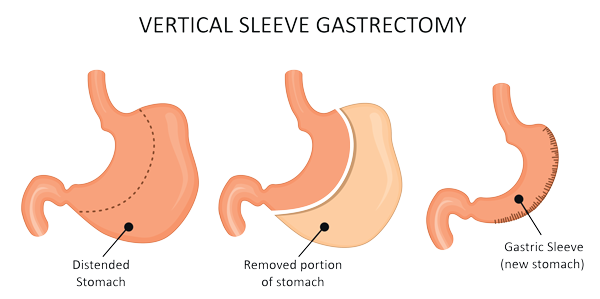
Bariatric Surgery
Commonly referred to as weight loss surgery, bariatric surgery is one of the few weight loss treatments that has a history of proven results. The term bariatric surgery refers to any surgical procedure on the stomach or intestines to induce weight loss.
Bariatric surgery is a term that encompasses a number of procedures. The most common procedure is gastric sleeve surgery (sleeve gastrectomy). Gastric bypass is the second most often performed weight loss surgery. Mini Gastric Bypass (MGB) is another operation that is rapidly gaining popularity.
HOW DOES BARIATRIC SURGERY WORK?
Weight loss surgery works because of restriction and/or malabsorption. Some surgical procedures involve only restrictive elements, while others involve a combination of both.
Malabsorptive
These operations facilitate the passage of food directly to intestines, bypassing its normal transit through stomach and some part of small intestine. The idea is to reduce the surface for absorption of food from the digestive tract thus reducing the amount of calories in daily intake.
Restrictive
Restrictive procedures reduce the size of the stomach so a patient feels full quicker. This is typically done with staples and the stapled stomach is either removed or bypassed depending on the procedure. Reducing the size of the stomach may also reduce ghrelin (hunger governing hormone) production and reduce hunger.
Restrictive procedures can be restrictive only or combined with a malabsorptive operation.





